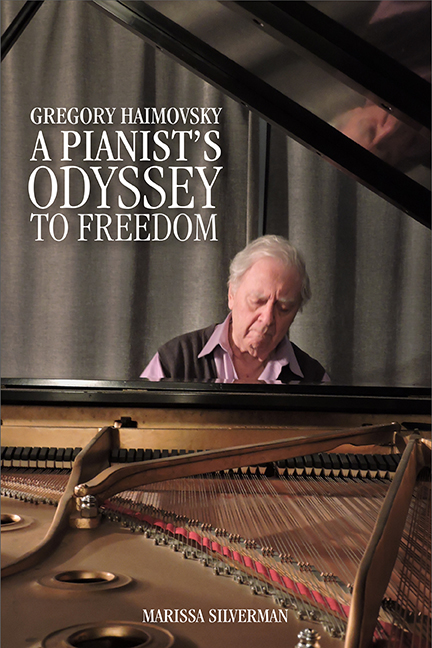Book contents
- Frontmatter
- Dedication
- Contents
- Acknowledgments
- Introduction
- 1 A Pianist Is Born
- 2 A Concert Pianist in Exile
- 3 Spirituality, Love, and Color: Understanding Messiaen’s Music
- 4 From Thaw to Frost: Neonationalism and the Messiaen Premieres in the USSR
- 5 Haimovsky and Grazhdanstvennost’
- Appendix 1 Selected Performances of the Music of Olivier Messiaen by Gregory Haimovsky, 1964–72
- Appendix 2 Selected Writing by Gregory Haimovsky on the Music of Olivier Messiaen
- Notes
- Index
Appendix 2 - Selected Writing by Gregory Haimovsky on the Music of Olivier Messiaen
Published online by Cambridge University Press: 04 June 2021
- Frontmatter
- Dedication
- Contents
- Acknowledgments
- Introduction
- 1 A Pianist Is Born
- 2 A Concert Pianist in Exile
- 3 Spirituality, Love, and Color: Understanding Messiaen’s Music
- 4 From Thaw to Frost: Neonationalism and the Messiaen Premieres in the USSR
- 5 Haimovsky and Grazhdanstvennost’
- Appendix 1 Selected Performances of the Music of Olivier Messiaen by Gregory Haimovsky, 1964–72
- Appendix 2 Selected Writing by Gregory Haimovsky on the Music of Olivier Messiaen
- Notes
- Index
Summary
Without erasing the past, one must examine the present and investigate the future. While the great themes change little, their expression is constantly renewed. Let us be innovative, join the chain, without attaching ourselves to such and such a chain-link of the past.
—Olivier MessiaenIn what follows, I provide excerpts of Gregory Haimovsky's manuscripts on the music of Olivier Messiaen. Haimovsky's conclusions about and descriptions of Messiaen's music follow directly from his preparations for numerous performances of Messiaen's repertoire in the USSR, and from the research he conducted prior to publishing in the journal, Soviet Music.
The publisher Soviet Composer contracted Haimovsky in 1968 to write the first Russian book on Messiaen. He completed the manuscript in 1970, but the Soviet hierarchy blocked its publication, because Communist Party censors objected. This original manuscript investigated Messiaen's oeuvre and comprises 230 pages, sixty-one music examples, three theoretical/ analytical illustrations, and four diagrams of rhythmic organization, modal constructions, and structural-sonic arrangements. These elements in the original monograph combined to form an analysis of the roots and growth of Messiaen's musical aesthetics. Years later, Liberty Publishing House (New York) published selected sections of the manuscript. In this 2009 publication, Haimovsky honed his discussions of Messiaen's music for a general Russian-speaking audience.
In Haimovsky's authorized excerpted material, he discusses specific compositions by Messiaen that he premiered in the USSR, and shares his comments on some of Messiaen's other important works. Additionally, I include Haimovsky's views on Messiaen's compositional aesthetics. But because I primarily focus on Haimovsky's discussions of the pieces he premiered, I do not include his in-depth analyses of such important compositions as Chronochromie, Sept haïkaï, and Couleurs de la cité céleste.
Haimovsky did most of his scholarly investigation and writing between 1964 and 1970. Because he was the first Russian musician to fully examine and then premiere Messiaen's music from both an artistic and a scholarly perspective, there was no Russian research to draw on. And except for three French volumes on Messiaen's music, there were no other sources—in the world—that Haimovsky could have used while doing his work. So if the Soviet authorities had not blocked the publication of his book, it would have been the world's fourth monograph on Messiaen.
- Type
- Chapter
- Information
- Gregory HaimovskyA Pianist's Odyssey to Freedom, pp. 173 - 218Publisher: Boydell & BrewerPrint publication year: 2018



